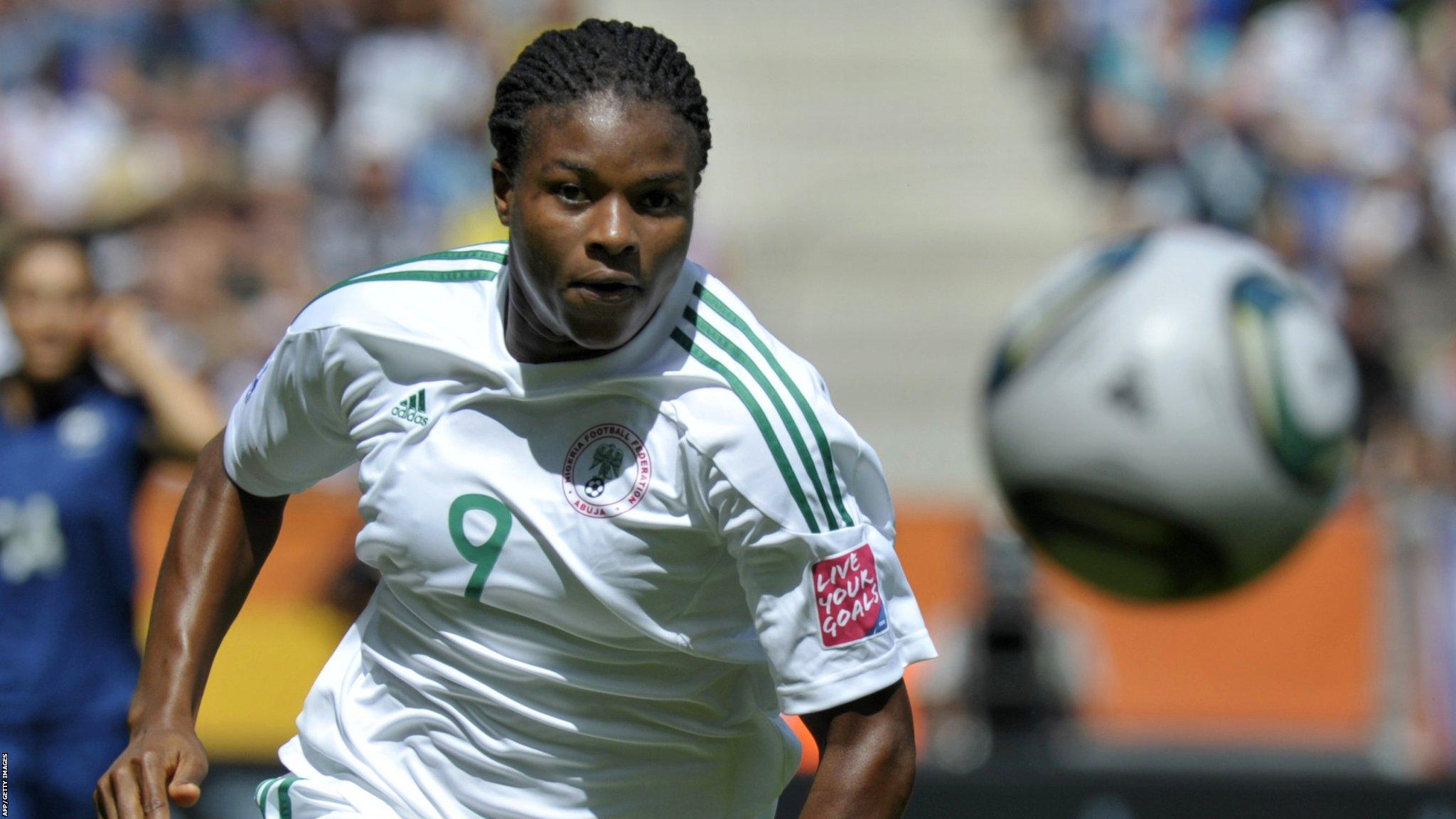Caf keen to develop women's game despite scrapping 2020 AWCON
- Published
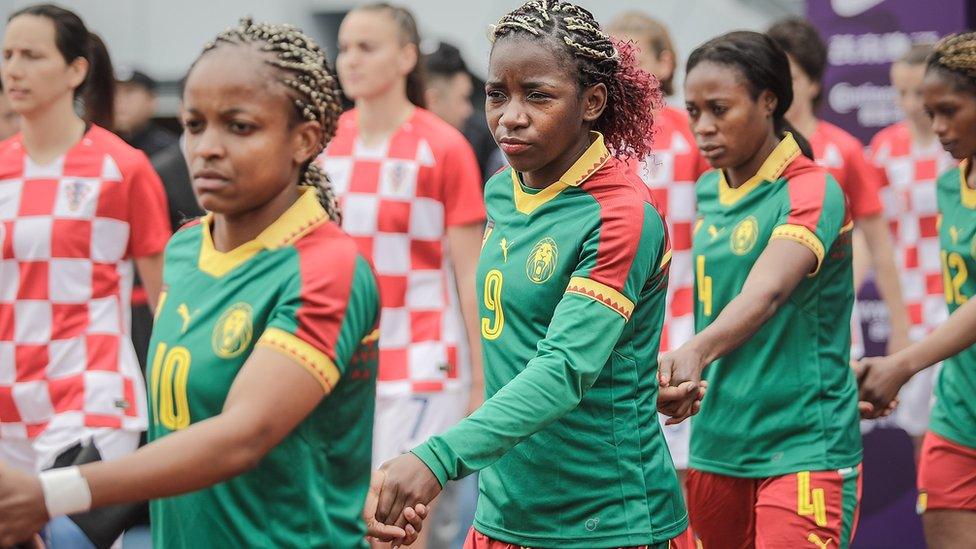
Caf is keen to boost the levels of women's football across the continent
The Confederation of African Football (Caf) says it is intent on developing women's football on the continent despite cancelling the 2020 Women's Africa Cup of Nations (AWCON) last week.
The decision to scrap the Nations Cup was sweetened by the announcement of a continental Women's Champions League but it was still a bitter pill for many to swallow.
Last week, leading figures such as Nigeria's Barcelona star Asisat Oshoala, external and South Africa coach Desiree Ellis criticised the decision.
"Women's football is, today, one of the top priorities of Caf," the body's acting Secretary General Abdel Bah insisted to BBC Sport Africa.
"We perfectly understand the frustration of the top African players. We consider today that it is a small step back for a huge step (forward) in the future regarding women's football."
Bah expressed a desire to significantly invest in the women's game, while stating that the possibility of low viewing figures had also been a determining factor in scrapping this year's AWCON.
Nonetheless, cancelling rather than postponing the tournament - as Caf did with the men's Nations Cup (moving it from 2021 to 2022) - did not go down well with many protagonists.
"For African teams, if there's no qualifying games we don't play," said Oshoala. "We don't do anything - and then, when there are qualifiers or an AWCON we go to camp. We have to prepare and be ready, but right now African teams are not ready."
"Taking away the AWCON will put a lot of dreams on hold," said Ellis.
"It has been a very complicated decision to make but at the end, the reasons are quite simple - obviously, it's all related to Covid-19," asserted Bah.
"We had the possibility to move this edition to next year but unfortunately it was impossible to find a slot by the end of 2021. The only slot available was in June/July, which means during the European Championships, Copa America or the Olympics.
"We considered that we would have had a very, very low audience at the AWCON and this is why we took this very complicated decision - but also to get more focus on the development of women's football."
The fact that not a single qualifying game had taken place, in contrast to the men's tournament, was also a factor, Bah added.
The Moroccan believes that an increasing desire within Caf to focus on women's football will ultimately bring dividends for the continent's players, even if it may come too late to those in the twilight of their careers.
"We know that this decision (to cancel AWCON) is complicated but we hope that we will see the results of our strategy in the next five years."
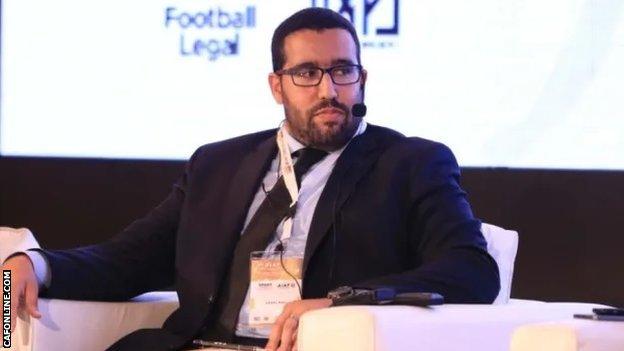
Abdel Bah hopes Caf's strategy for women's football can boost its World Cup allocation
The plan to achieve this is set to be through significant investment into an area that has been underfunded for many years, with national team players and coaches often paid late - if at all.
Until 2016, Africa's women's continental champions received the same amount - $50,0000 - as Africa's male Under-17 champions. They may receive greater prize money today, but the AWCON winners' $200,000 is still $50,000 less than their male Under-20 counterparts.
"There is room for the development of women's football in Africa," added Bah, whose organisation organised its first continental symposium on the sport in 2018.
African Women's Champions League
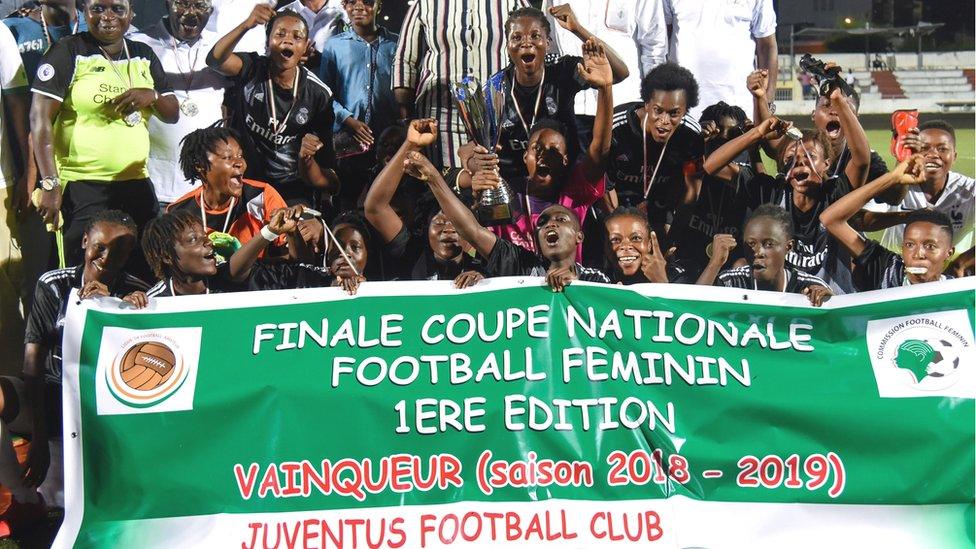
Women's football is growing across Africa
In the second half of 2021, a tournament perhaps featuring eight of Africa's best female club sides will play in perhaps a single host nation for the right to be the continent's best.
As implied, much has still to be decided - not least of all how the participants will be determined.
"We are still discussing the format but most likely, albeit still to be defined, the first edition of the Women's Champions League will be a final tournament in one host country," said Bah.
"We are still having discussions today about how many teams and how to qualify the teams - we don't know if we will have qualifiers or if we will take the best teams and qualify them directly for this first edition. But for sure, it will be a final tournament."
While explaining that the number of interested teams is likely to influence thinking, Caf said it is currently targeting 'maybe eight teams, and to organise it as two groups of four'.
Africa's ruling body is exploring the possibility of qualifiers - should they happen - on a regional basis, along the lines of the various zonal unions in a bid to save money on expensive travel costs.
Women's World Cup
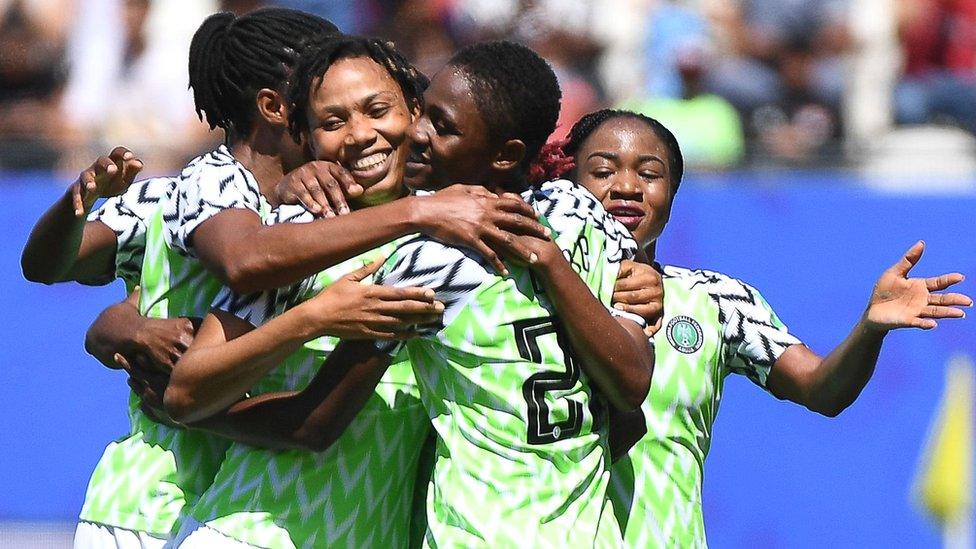
Nine-time continental champions Nigeria are the only African nation to have twice reached the World Cup knock-out phase
Caf says one of its main priorities as it looks to restructure women's football across the continent is to gain more berths at the Women's World Cup.
Africa had three berths when the tournament featured 24 teams in 2015 and 2019, but its number of places for the newly-expanded 32-team finals in 2023 have still to be decided - with Bah expecting a decision next year.
"They will be very complicated discussions because all the confederations will push to get more," he said. "We need to convince them that it is worth giving more slots to African teams. We consider the best way to do that is to develop our local leagues."
Under the terms of Fifa's Forward 2.0 programme, Africa's nations will receive extra funding - which can total some $4m - until 2022 as long as they fulfil certain criteria, one of which is the organisation of a women's league.
Caf itself also receives $12m ever year, with one of the conditions being that part of this must be spent on developing the women's game.
"Part of this money has to go to women's development. We are also sending subventions to all our members and one of the conditions is to use it to develop women's football - so we are trying to finance as much as we can."
And there is an increasing amount requiring financial investment.
"People are quite surprised that today we have almost 30 women's leagues in Africa - we have to develop them, get focussed on them, professionalise them. This is, for us, one of the best ways for our African teams to be much more competitive in international tournaments."
Herein lies a problem for Africa's hopes of boosting its teams to five, which Bah describes as a 'very nice target' and which would represent the continent's equivalent in the men's World Cup.
Since the tournament started in 1991, only four of Africa's total of 16 entrants have gone past the group stage - with Nigeria, alone in reaching the knock-out stage twice, the only country to make the quarter-finals, back in 1999.
Caf can point to two teams reaching the Last 16 for the first time in 2019, but will also hope the continent can impress at next year's Olympics - even though the decision to cancel AWCON means Zambia and possible qualifiers Cameroon will have missed out on vital tournament experience prior to Tokyo.
2020 AWCON
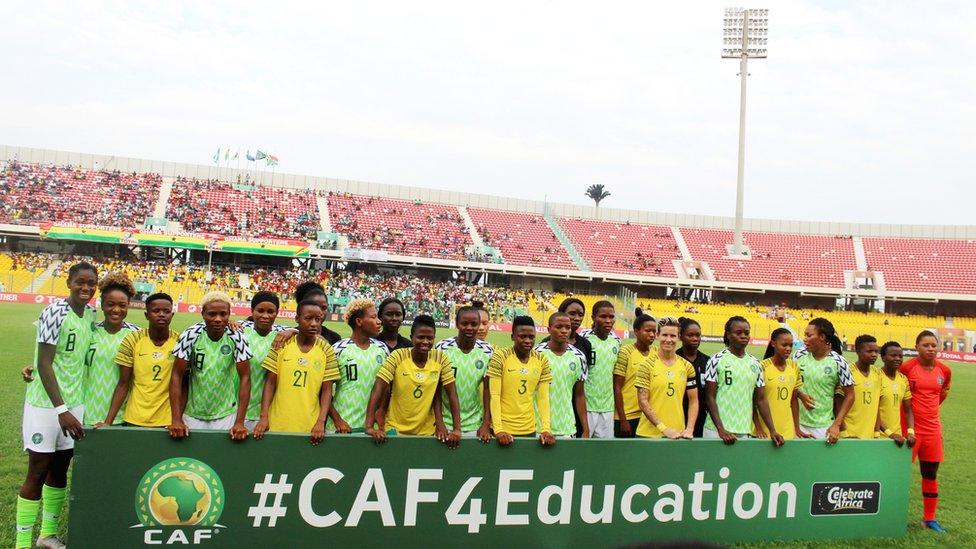
Eventual champions Nigeria and South Africa line up before the 2018 AWCON final in Ghana
Scheduled for November, this 2020 edition has been in doubt since original hosts Congo withdrew citing financial pressures in July 2019, just a week before the tournament was expanded to 12 teams.
By the time the tournament was unsurprisingly cancelled last week, just four months before its due start, it still had no host.
Qualifiers should have started in April but by the time of last week's decision, only the international windows of September and October remained as options given sport's widespread suspension because of Covid-19.
"We know that unfortunately it will not be possible to travel easily in Africa in September. So it was impossible to complete the qualifiers this year and if we cannot complete this year, we can definitely not play the final tournament this year," said Bah.
The decision to cancel, rather than postpone, was not welcomed by the tournament's main sponsors, Total and Orange.
"Even for them, it was not something that could have been rescheduled during June/July in terms of visibility of audience - it would have been like nothing. Unfortunately, this outbreak was something that was not planned."
Nonetheless, the AWCON cancellation means the Champions League is likely to benefit from increased attention.
"The sponsors are disappointed because they are investing a lot in the development of women's football, which is why they are interested by this kind of new competition."
Women are breaking through in Sudanese football.
- Published24 June 2019
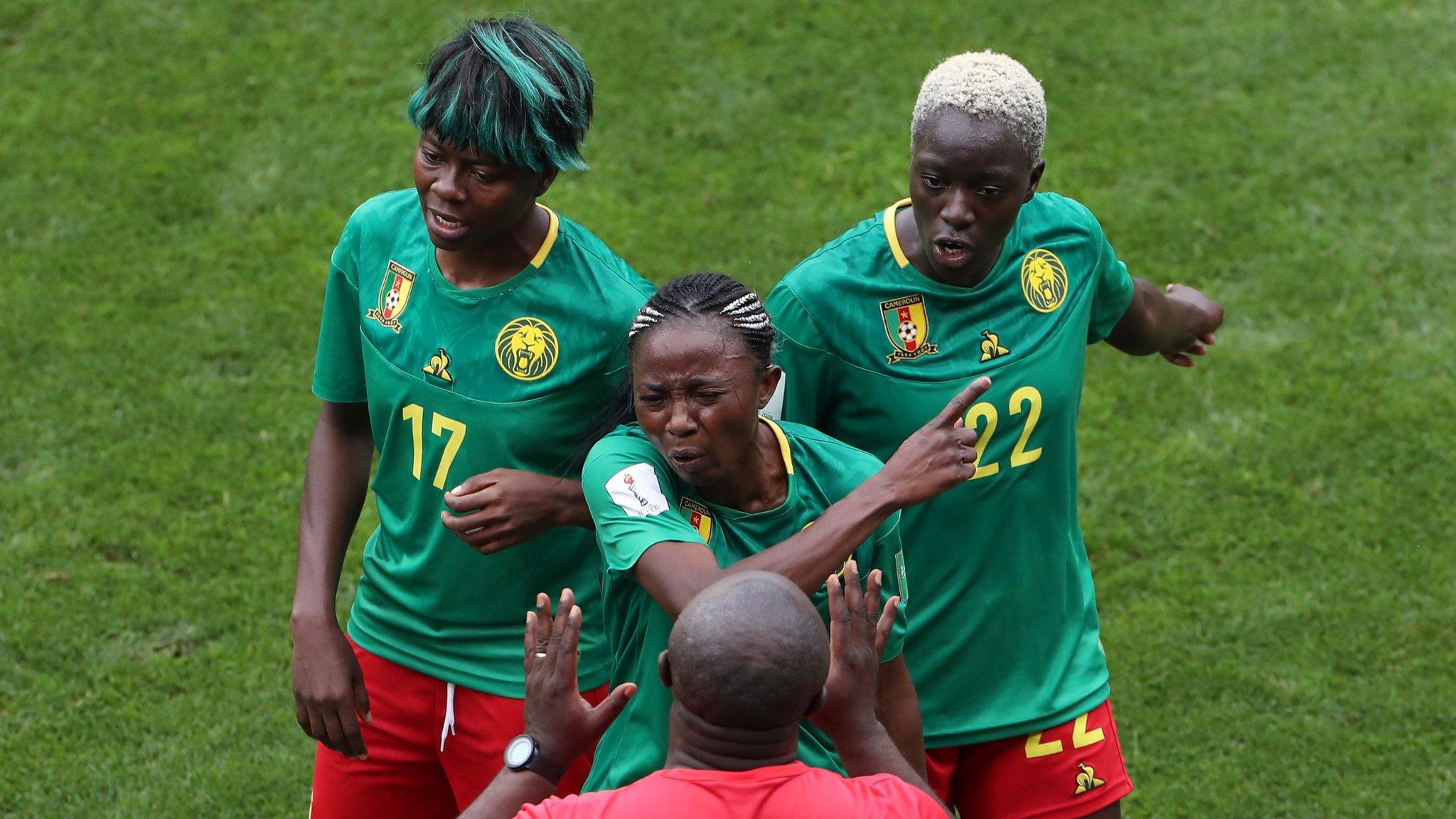
- Published24 June 2019
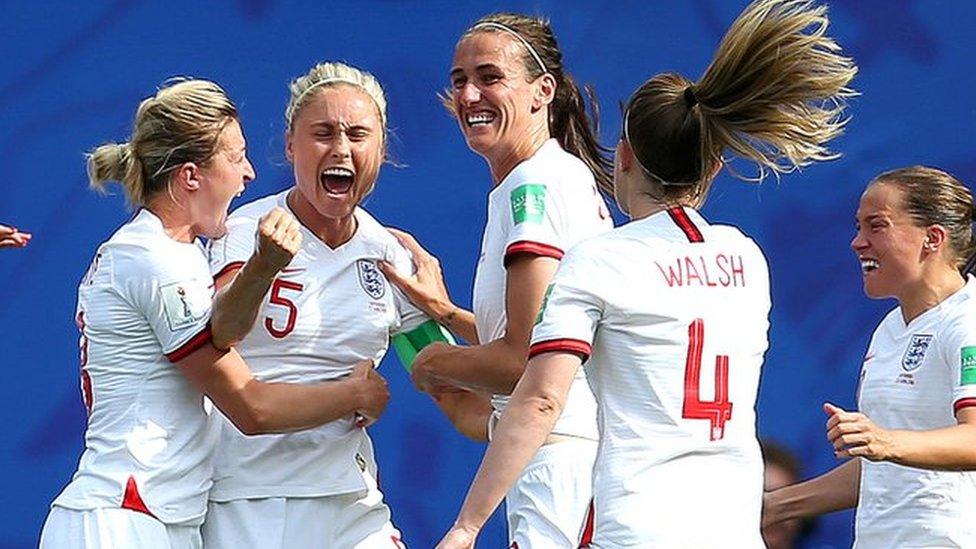
- Published1 December 2018
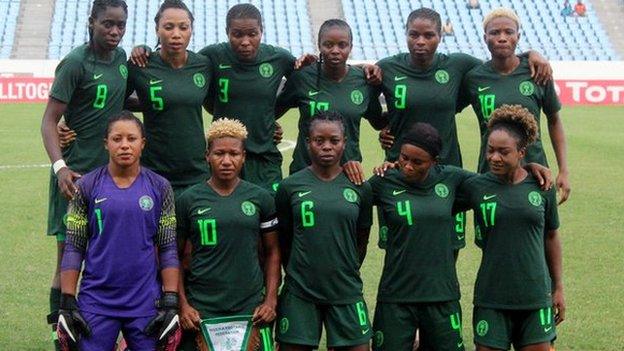
- Published3 December 2016
